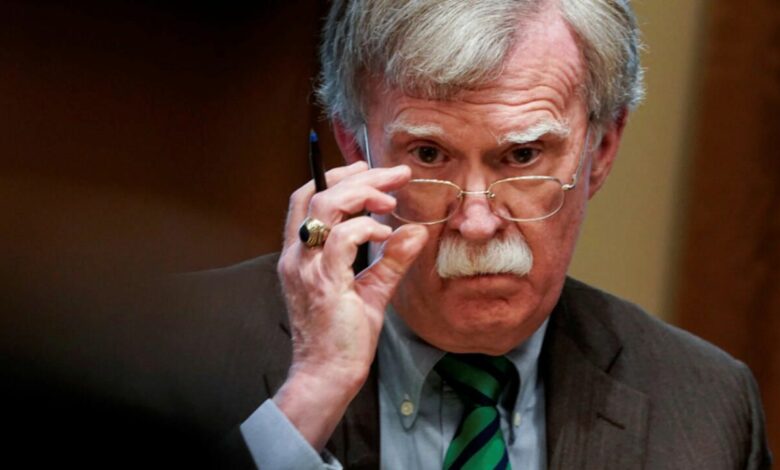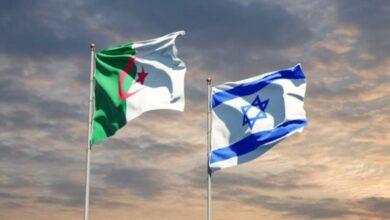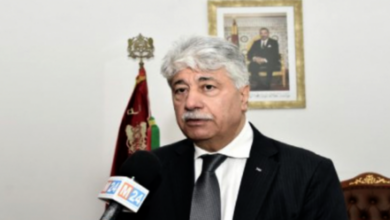Bolton… The American Hawk of Destruction and the Chaos Architect Allied with Algeria’s Generals
Bolton… The American Hawk of Destruction and the Chaos Architect Allied with Algeria’s Generals

Aldar / Analysis
John Bolton needs little introduction. He is one of the most prominent symbols of aggressive U.S. foreign policy—one that has sown destruction and bloodshed across various regions of the world, from Iraq to Libya, and from Venezuela to North Korea.
However, the lesser-known face of this “extremist hawk” lies in his blind support for oppressive regimes—chief among them the Algerian military regime. Bolton has not hesitated to align himself with this authoritarian establishment in its stance against Morocco’s legitimate rights in the Sahara, blatantly disregarding international legitimacy and the principles of sovereignty.
During a media interview in January 2025, former U.S. President Donald Trump did not mince words, calling his former National Security Advisor “very stupid,” adding, “He was only useful because people thought he might start a war with them.” Although the comment bore a tone of personal revenge, it nevertheless exposed much of the reality behind Bolton’s persona—one the media has often chosen to ignore: a man who does not seek solutions but sows the mines of crises, thriving on tensions and conflicts wherever they exist.
Perhaps the most striking part of Trump’s remarks was his direct blame on Bolton for pushing the George W. Bush administration toward invading Iraq, saying, “We blew up the Middle East and just walked away.” While Trump is far from a model of political sobriety, his words reflect a bitter reality experienced by the peoples of the region—one paid for in blood and ruin due to Bolton’s obsession, and that of his ilk, with exporting fire instead of diplomacy.
Indeed, Bolton has never been a peacemaker, but a theorist of chaos—he smiles as missiles fall and states collapse.
Yet the most dangerous role Bolton has played—rarely spotlighted—is his murky alliance with the ruling military establishment in Algeria. From his former position on the U.S. National Security Council and through various political pressure platforms in Washington, Bolton worked to obstruct all UN initiatives aimed at resolving the Moroccan Sahara issue in a fair and balanced manner.
He blatantly sided with the separatist narrative sponsored by Algeria, stubbornly promoting an artificial reality that defies the logic of geography and history—as if his positions were crafted not in a White House office but within Algerian military barracks.
Numerous reports from American and European think tanks have confirmed the presence of lobbying and influence operations carried out by Algeria through proxies in Washington. Bolton stood out as one of the most vocal figures aligning with this hostile stance toward Morocco.
This was not just a matter of “political opinion” but a direct involvement in perpetuating a fabricated conflict—a cynical political investment in the suffering of a region already plagued by security and economic fragility.
Bolton became a strategic asset for Algeria’s generals in the heart of the American capital, and could even be considered an “unofficial ambassador” of the forces opposing Morocco’s territorial integrity.
Trump’s decision to strip Bolton of his security protection despite ongoing Iranian threats against him was a clear sign of how far his influence had collapsed within top-level circles. For a former national security advisor to be denied protection under actual terror threats is almost unheard of—and speaks to the unmasking of figures once hailed as protectors of America, but who in truth have become burdens on its security and international credibility.
John Bolton is not merely a controversial figure in the annals of American foreign policy—he is a living example of the dark alliances between Washington’s war hawks and foreign authoritarian regimes. A man who wielded politics like a sword, not an art—and treated global affairs as tools of devastation, not diplomacy.
And if history never forgets those who write its pages with blood and fire, then Bolton’s name will remain forever tied to years of chaos, hostility toward Morocco, and complicity with the failed generals of Algeria.





